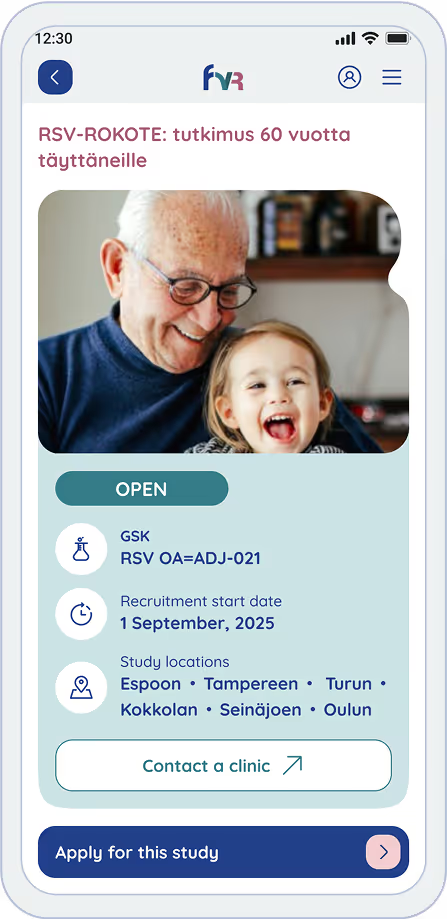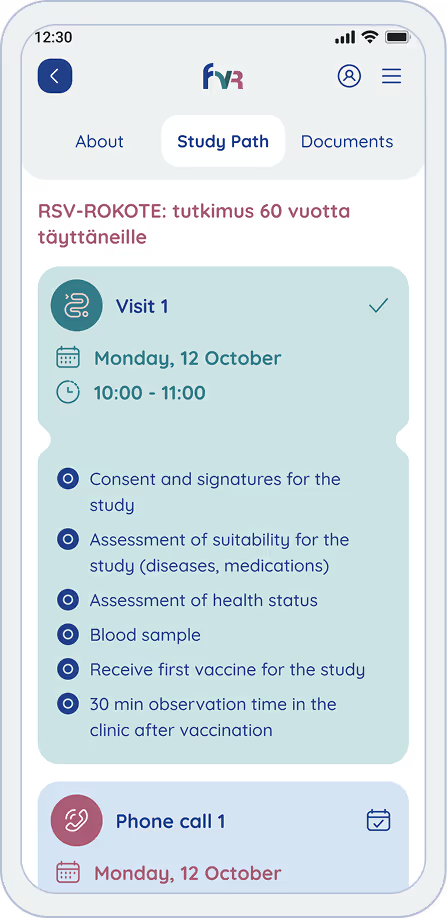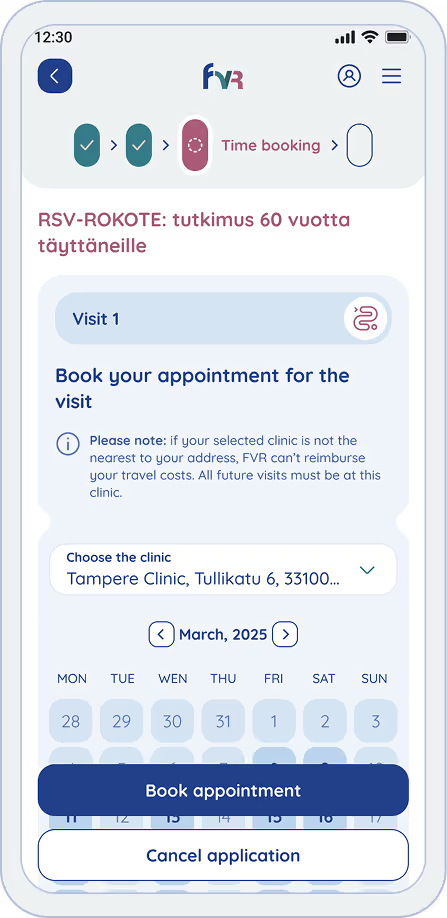Rokotteilla parannetaan ihmisten elämänlaatua ennaltaehkäisemällä sairauksia. Niillä on keskeinen rooli kansanterveyden edistämisessä ja vakavien tautien taltuttamisessa. Me tutkimme rokotteiden tehoa, turvallisuutta ja vaikuttavuutta vuosikymmenten kokemuksella ja kansainvälisesti tunnustetulla, tieteellisesti laadukkaalla osaamisella.

tutkimusta

osallistujaa (kliiniset tutkimukset)

klinikkaa

asiantuntijaa
Vapaaehtoisillemme suunnattu Osana-portaali on luotu kansalaisten tarpeesta: sen tavoitteena on helpottaa vapaaehtoisten tiedonsaantia tutkimuksista, osallistumista rokotetutkimuksiin ja parantaa asioinnin sujuvuutta.
Rekisteröitymällä uuteen vapaaehtoisportaaliimme saat ajantasaisen tiedon meneillään olevista rokotetutkimuksista.
Rekisteröidy täältä!


Rokottaminen tarjoaa turvallisen tavan kehittää elimistölle vastustuskykyä ilman, että täytyy sairastaa itse tautia. Vaikka sairastettu tauti voi joissain tapauksissa antaa suojan uusilta tartunnoilta, siihen liittyvät komplikaatiot voivat olla vakavia tai hengenvaarallisia. Rokote on hallittu ja tehokas keino suojautua tartunnoilta.
Jokainen rokote tutkitaan huolellisesti ja pitkään ennen käyttöönottoa, ja sen tehoa sekä turvallisuutta seurataan tarkasti myös sen jälkeen.

Puhtaan veden ohella rokotteet ovat tärkein ihmisten terveyttä edistävä keksintö (WHO)

Tällä hetkellä yli 20 vakavaa tautia voidaan ennaltaehkäistä rokotteella

Rokotteet pelastavat 3,5–5 miljoonan ihmisen hengen joka vuosi

Rokottaminen on vastuunottoa itsestä ja muista

Rokotusten ansiosta lapset saavat kasvaa terveinä

Rokotteet lisäävät ikääntyneiden terveyttä ja toimintakykyä
Erityisosaamiseemme kuuluvat laajat kliiniset rokotetutkimukset kattaen tutkimussyklin kaikki faasit (1-4) ja yleisessä käytössä olevien rokotteiden vaikuttavuus- ja turvallisuusselvitykset.

Meillä on vahvaa erityisosaamista havainnoivista RWE-tutkimuksista ja pragmaattisista kenttätutkimuksista sekä Suomen kattavien terveystiedon rekistereiden ja tietovarantojen hyödyntämisestä.


.svg)
FVR, Oulu Rokotetutkimuskeskus
Kiviharjunlenkki 6, 90220 Oulu
FVR, Kokkola Rokotetutkimuskeskus
Rantakatu 16, 6. krs, 67100 Kokkola
FVR, Seinäjoki Rokotetutkimuskeskus
Kauppatori 1-3, 2. krs, 60100 Seinäjoki
FVR, Tampere Rokotetutkimuskeskus
Tullikatu 6, 4. krs, 33100 Tampere
FVR, Järvenpää Rokotetutkimuskeskus
Mannilantie 44, 2. krs, 04400 Järvenpää
FVR, Etelä-Helsinki Rokotetutkimuskeskus
Kluuvikatu 7, 5. krs, 00100 Helsinki
FVR, Espoo Rokotetutkimuskeskus
Piispansilta 11, 02230 Espoo
FVR, Turku Rokotetutkimuskeskus
Lemminkäisenkatu 14-18 B, 6. krs, 20520 Tampere